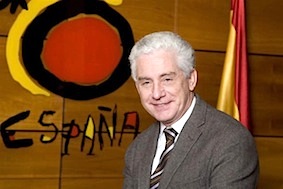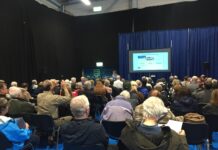“We are investing a lot of money into the development of innovative mobile apps and using social media for communications as part of our responses to the changing patterns in booking travel by the consumer and travel agents,” Manuel Butler Halter, General Director of the Institute of Tourism of Spain, told Irish Travel Trade News today, Friday 12thApril.

“Last year we undertook a lot of market research into how people in markets worldwide tend to respond to questions and since December we have been evaluating the results – in co-operation with the marketing department of Coca-Cola in Spain. We are running consumer panels, with holiday prizes, in several markets.
“The travel trade continues to be very important to us – as do tour operators, who lost some market share since 10 years ago but have won some back over the past two years.
“Some 28% of Irish people visit Spain each year and Ireland continues to be a very strong market for us. I also have Irish roots in Kilkenny – so there is a personal connection! Last year our international visitors were up by 3% and tourism revenue was up 6%.
“We are expecting good figures from European markets this summer, except from Italy, and Eastern European countries are showing particularly high increases. It is also clear that the BRIC countries are becoming increasingly important – and so we are more and more promoting to long-haul markets.
“Spain is second in the world for the number of UNESCO World Heritage Sites and National Parks, and we are increasingly promoting our wide differentiation of tourism offers – including rural tourism and our investment in connectivity as regards major roads and high-speed rail.
“Spain was also a pioneer in developing quality systems for tourism – and we continue to develop standards for destinations, hotels, restaurants and rural tourism enterprises, for example. Rural tourism traditionally had strong links with the domestic market, but this has declined and now international markets are becoming ever-more important – that’s why it has become easier to persuade rural enterprises in all our 17 regions of the importance of nationwide standardisation.
“One very interesting pilot project is taking place on the Canary Island of El Hierro, which has become the world’s first free wi-fi and zero CO2 emissions island, complete with electric cars.”




